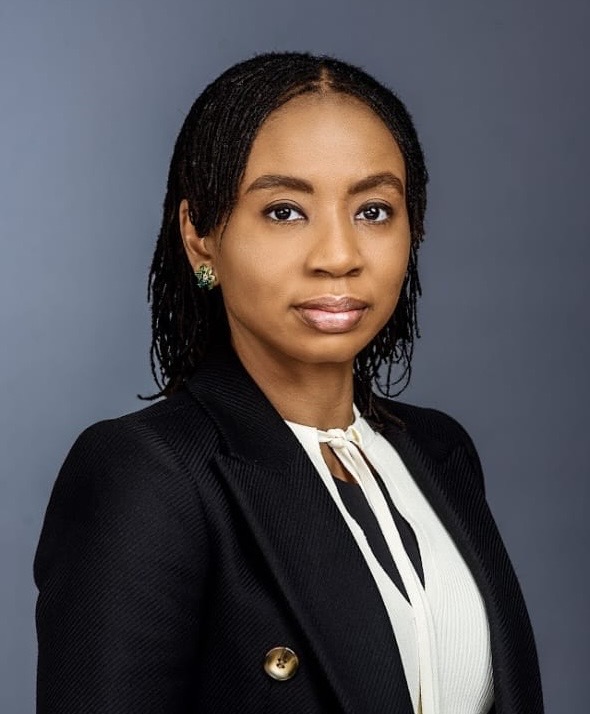PenCom, judiciary partner on reforms, unveil new pension plan
By Nana Musa
The National Pension Commission (PenCom) has reaffirmed its commitment to strengthening collaboration with the judiciary in advancing Nigeria’s pension reform agenda and ensuring effective retirement benefits administration.
The Director-General of PenCom, Omolola Oloworaran, said this at a Sensitisation workshop on the Contributory Pension Scheme (CPS) for Judges of the National Industrial Court of Nigeria (NICN),on Wednesday in Abuja.
Oloworaran was represented by the Acting Commissioner, Administration, Mr Bello Malabu.
She said that the engagement provided a platform to deepen understanding and clarify concerns between the judiciary and the pension industry.
“Significant progress has been made over the past 20 years, although challenges persist, particularly in the areas of accrued pension rights, delayed remittances, and transition issues affecting some judicial officers.
“Through the intervention of President Bola Tinubu, the Federal Government now pays retirement benefits of Treasury-funded Ministries, Departments, and Agencies (MDAs) when due.
“The commission has opened discussions with the National Judicial Council (NJC) to resolve pending issues relating to accrued benefits of some judges who transitioned into the CPS before their elevation to the Bench.”
Oloworaran assured that such matters would be handled fairly and transparently.
She commended the objectivity with which judges have handled pension-related cases.
She said that continuous judicial education on pension law and policy was essential for deepening jurisprudence and improving adjudication in pension matters.
Oloworaran also introduced the Personal Pension Plan (PPP).
She described it as a rebranded voluntary pension product designed to provide greater flexibility and inclusiveness for professionals, self-employed persons, and individuals in non-traditional employment arrangements.
She encouraged judicial officers and other senior public officials to explore the scheme as a means of enhancing their financial security in retirement.
“Permit me to share with you the benefits of a unique pension product recently rebranded by the Commission, the Personal Pension Plan (PPP).
“This product complements the mandatory CPS by offering greater flexibility and inclusiveness to participants.
“The PPP is designed to cater for individuals who may not be covered under the mandatory scheme, including professionals, self-employed persons, individuals in non-traditional employment arrangements and those seeking to make voluntary contributions.
“We earnestly all Justices and Judges of all Superior Courts in Nigeria who are exempted from the CPS to consider participating in the PPP as a means of enhancing your retirement security and that of your dependents,” she said.
She said that as custodians of justice, their welfare was paramount, adding that PenCom remained steadfast in its commitment to working to ensure that the objective was fully realised.
Oloworaran also unveiled the first volume of the Pension Law Report, a compendium of landmark judgments on pension matters delivered by the NICN and other courts.
She commended the President of the NICN, Justice Benedict Kanyip, for his support in facilitating the publication and for his commitment to promoting sound pension jurisprudence in Nigeria.
The NICN President called for a comprehensive reassessment of political pensions and severance packages, describing them as inconsistent with social justice and the spirit of public service.
Kanyip said that Nigeria’s pension landscape needed to be strengthened to ensure fairness, efficiency, and broader inclusion of workers, particularly those in the informal sector.
He said that labour rights extended beyond active employment to include post-employment entitlements such as pensions.
Kanyip decried the moral and social imbalance created by the payment of lifetime pensions and gratuities to former governors and political appointees who already earn substantial benefits while in office,
“It is not morally right to pay an elected public officer or political appointee pension and gratuity for holding such an office for three to eight years.
“Any law that provides for the payment of pension and gratuity to such office holders lacks moral justification, promotes social injustice, and can not be democratic,” Kanyip said.
He said that challenges like non-remittance of contributions, poor enforcement, inadequate coverage, and delays in benefit payments made only about 10 per cent of Nigeria’s working population to be covered by formal pension schemes.
Kanyip said that to ensure sustainability, PenCom needed to tighten compliance mechanisms, impose stricter penalties on defaulting employers, and explore the use of digital systems to improve transparency and payment efficiency.
He said that the CPS remained a crucial framework for protecting Nigerian workers’ post-employment rights but required constant adaptation to remain fair and effective.
“The payment of pensions to political office holders appears to contradict the principles of public service and democratic values, and has the effect of making the contributory pension scheme pale into insignificance,” he said.
The President of the Pension Fund Operators Association of Nigeria (PenOp), Mr Godson Ukpevo, said that the retreat focused on the interpretation and administration of the PRA.
Ukpevo said that it represented an opportunity for reflection, reviewing the successes and challenges of the system.
He said that it would also deepen the judiciary’s engagement with a law that affected the financial wellbeing and social stability of millions of Nigerians.
Ukpevo, who is also the the Managing Director of Veritas Glavills Pension Limited, said that legal and institutional framework were one of Nigeria’s most successful public policy innovations.
He said it has restored confidence in retirement planning, created millions of contributors, and grown pension assets to over N25 trillion, representing a substantial pool of long-term domestic capital. (NAN)
Edited by Kadiri Abdulrahman






